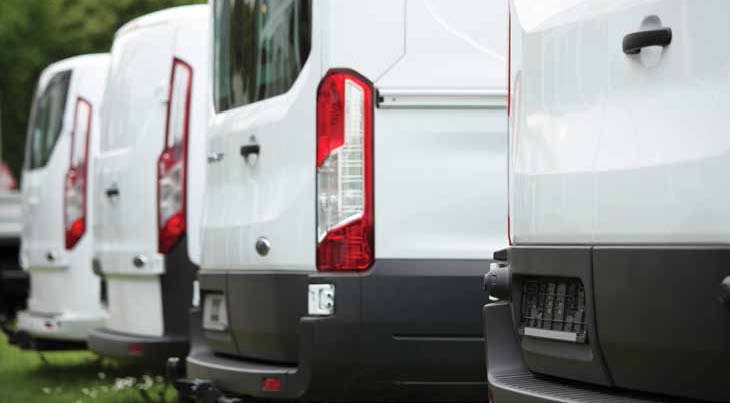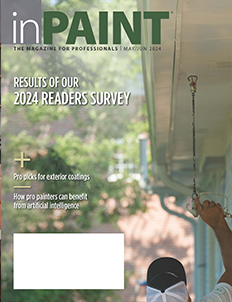Renting vs. Purchasing Commercial Vehicles: Which Is Right for You?
 No painting business needs to be told how important it is to have commercial vehicles handy at all times. The more pickup trucks and cargo vans you have, the more paint, ladders and extension rollers you can carry around, which can lead to more projects—and more revenue. If you’re ready to take the next step and obtain a new set of wheels, only one question stands in your way: Is it better to rent or own?
No painting business needs to be told how important it is to have commercial vehicles handy at all times. The more pickup trucks and cargo vans you have, the more paint, ladders and extension rollers you can carry around, which can lead to more projects—and more revenue. If you’re ready to take the next step and obtain a new set of wheels, only one question stands in your way: Is it better to rent or own?
The answer to this question depends on three key factors: how frequently your business rents vehicles, the costs of renting vs. owning, and the ways in which you might use a vehicle. Here’s how these factors can help you decide which option would be most beneficial to you and your business.
CALCULATING WHEN TO MAKE THE SWITCH
There’s nothing wrong with renting a vehicle as needed to ensure you’re only paying for what you need. In fact, renting extra vehicles every once in a while for specific projects may be your most cost-efficient option. This is especially true for painting businesses that are just getting started, where the need for extra vehicles is low. However, once your company is grounded and fully operational, if you’re still making payments on rented vehicles, the cost can add up quickly. The challenge is figuring out exactly when a switch from renting to owning should take place.
Let’s say your business is routinely in need of extra vehicles in order to take on big projects. If rental fees average $400 each month, you’re looking at $4,800 a year. The monthly cost is low, but over time the fees do add up (5 years = $24,000).
Now let’s say you decide to buy a $25,000 cargo van. Assuming you use financing to cover the monthly installments of $500 for five years (including $5,000 for financing), your total cost will be $30,000. But even though you spend more than you would with a rental, after five years you will have a tangible asset and you can start pocketing the money that would have gone to rental fees if you continued on that path.
Plus, it’s entirely possible that with the variety of equipment financing options available, you could end up spending less in monthly installments. Meaning even after you factor in the average annual expenses of $3,000–$5,000 related to vehicle ownership (insurance, registration fees, and general maintenance) you will still come out ahead.
It’s also worth mentioning that financing commercial vehicles can come with some great tax benefits. If you plan to finance a vehicle, be sure to ask your accountant about Section 179 Deductions.
A VEHICLE TO GROWTH—AND MORE
If you’ve grown accustomed to specializing in only a few types of projects, consider how another vehicle might allow you to expand your scope of services or simply work more efficiently. What’s more, there’s a lot of value (and prospects) to be found from parading your company name and phone number around on a commercial vehicle. The more company vehicles you own, the more opportunities your business gets to increase brand recognition.
__________________________________________________________________________________________
 Joseph Camberato is the president and cofounder of National Business Capital, a national leader in alternative business financing. His team is dedicated to innovating the way entrepreneurs grow by simplifying and expediting the funding process for small business owners and providing expert advice and guidance. NationalBusinessCapital.com
Joseph Camberato is the president and cofounder of National Business Capital, a national leader in alternative business financing. His team is dedicated to innovating the way entrepreneurs grow by simplifying and expediting the funding process for small business owners and providing expert advice and guidance. NationalBusinessCapital.com




